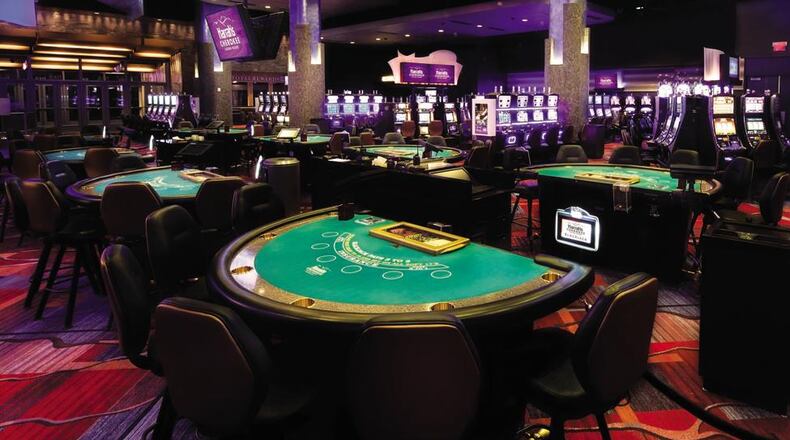Jim Hathaway said he’s had mixed feelings about gambling for a while.
“When I go into a convenience store — I don’t buy the lottery tickets — but I see a lot of people who, it looks to me, that those $5, $10, $20 they spend would be better going to milk and bread,” said Hathaway, who runs a business that sells fire extinguishers.
But after hearing a pitch from a House panel traveling the state talking about the expansion of legal gambling in Georgia, Hathaway said he’s come around.
“What they’re talking about — these things (casinos) are for people that are going on vacation and they make it an event,” said Hathaway, who lives in Valdosta. “So when you include motels and entertainment, it makes more sense.”
The Valdosta hearing was the first of several planned “listening sessions” across the state as lawmakers study the potential economic impact of expanding gambling, which supporters say would bring thousands of jobs and pump hundreds of millions of dollars into the Georgia Lottery-funded HOPE scholarship.
But to those in the room, it felt a lot like a sales pitch.
Various gambling bills have struggled to gain traction in recent years in the Georgia Legislature, but a recent call from Gov. Brian Kemp to cut state spending has renewed interest in finding new ways for the state to earn money.
Adding horse racing or casino gambling in the state would require Georgians to approve a constitutional amendment allowing the expansion. And the Legislature’s lawyers have encouraged lawmakers to pursue a constitutional amendment to legalize sports betting if they want that.
Getting a constitutional amendment through the General Assembly is a heavy lift. Two-thirds of each chamber would have to approve sending an amendment to voters.
House Ways and Means Committee Chairman Brett Harrell, who is one of a trio of chairmen overseeing the House panel, told a room of mostly people affiliated with local government or Valdosta State University that the purpose of visiting South Georgia was twofold.
“This is to share info on the first series of hearings we had in Atlanta and, more importantly, we want to hear from you what your opinion is and what your needs may be for your community,” the Snellville Republican said.
The hearing included a 25-minute video recapping three days of hearings last month in Atlanta and presentations from the local development and tourism authorities, who spoke of the benefits bringing a casino to Lowndes County.
Valdosta is much less likely to get a casino than, say Atlanta or Savannah, unless lawmakers agree to back several across the state.
Valdosta Mayor John Gayle said while he’s apprehensive about gambling, he can see the economic benefits of having a casino so close to I-75 and the Florida border.
“I’m not a proponent of gambling,” Gayle said. “But I am a proponent of things that would benefit the state.”
Local elected officials at the meeting said if Georgia voters approved a constitutional amendment allowing casinos, they would likely want to bring one to the Valdosta area.
But Gayle said it might be tough to get a county referendum approved.
“People may want to vote for it, but they don’t want the folks at their church to know they support gambling,” he said. “And the churches will mount a case about the morality of gambling.”
Many conservative groups and religious organizations oppose expanding any form of gambling because they find it immoral and an addictive habit that breeds crime. Others have questioned the rosy revenue predictions offered by supporters, especially as more states expand gambling and compete for customers.
Though no one questioned the morality of gambling at the Valdosta hearing, Judy Haverkamp with the local Humane Society said she would have trouble supporting legislation that allowed horse racing.
“That’s going to bother a lot of us,” she said.
House Regulated Industries Chairman Alan Powell, R-Hartwell, said the panel is still scheduling community visits, and he expects there will be a few more before lawmakers return to Atlanta in January for the 2020 legislative session. Harrell said he hopes the tour of the state allows lawmakers to learn as much as they can about what Georgians think.
“Our intent is to ask the citizens, ‘Do you support inviting this industry to Georgia?’ ” he said. “If the answer is yes, ‘How do you want us to enable this industry to come to Georgia so you all get your piece of the pie?’ ”
And sometimes, state Rep. Al Williams said, seeing an economic benefit can help persuade people to support an issue.
“It’s amazing how folks get converted when the money starts to roll in,” the Midway Democrat said.
About the Author
Keep Reading
The Latest
Featured



